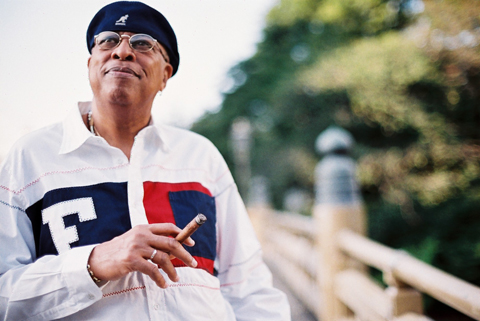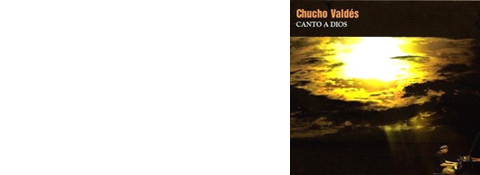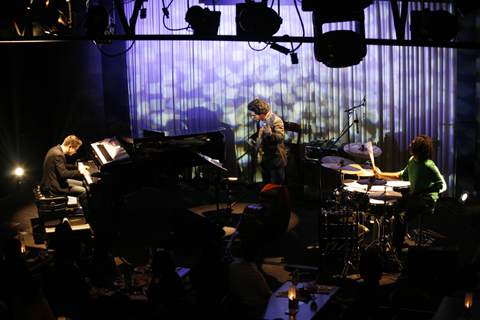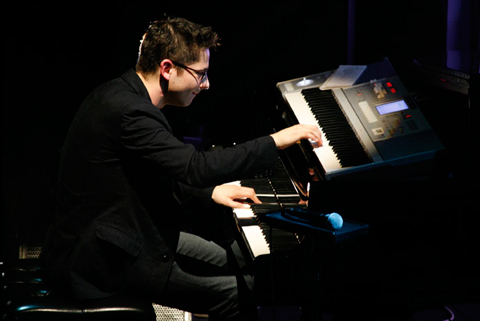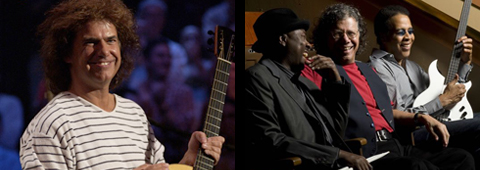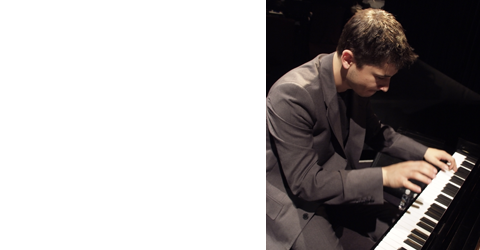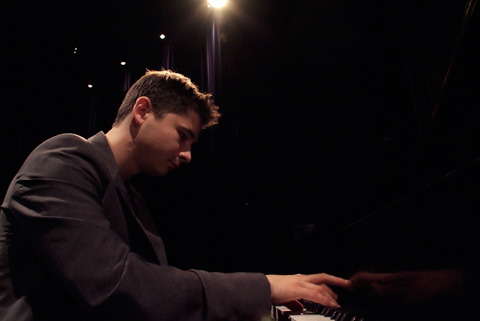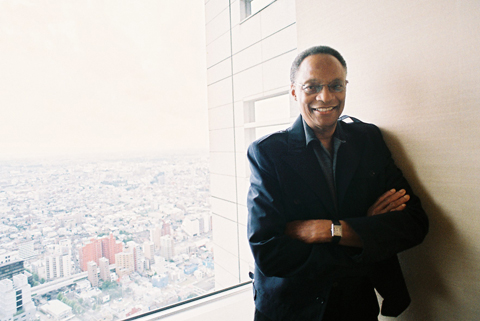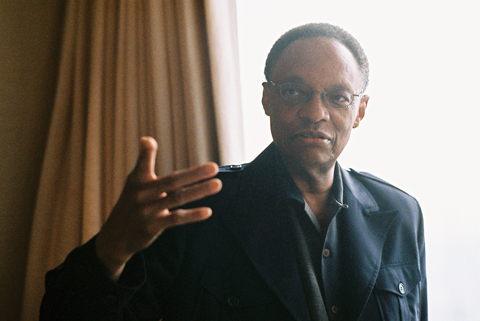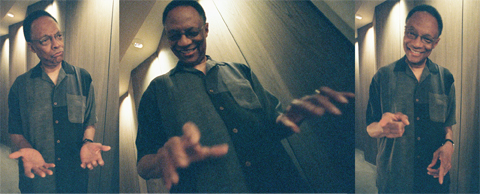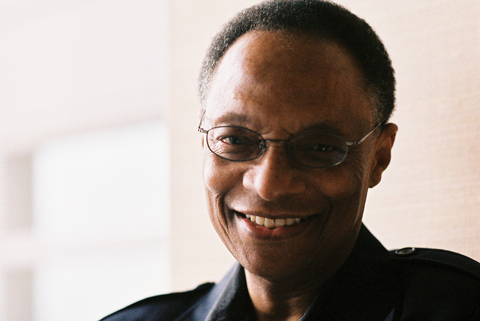
exclusive interview : MICHEL CAMILO
Q. 1
あなたにとって音楽とは? そして世界中の人々のために、音楽というものがどうあって欲しいですか?
☆ Michel Camilo ( 以下、☆Michel. C) :
Music is of course art. And art, for me, is the most intimate expression of the soul. You know, music has the power to make you feel any type of emotion. And that’s really special. That’s what makes it so special. In fact, I tell my students in my classes sometimes, that they’re all magicians. They don’t realize it. But they’re dealing with the spirit and, you know, in reality, once you understand that, you become a better musician. Or, like I said the other day here, at the clinic, “Then you become an artist.” You see, I always again, differentiate between a musician and being an artist. The musician plays the notes, the artist plays the feeling, and the emotions. And the artist has the power of making people’s hearts become faster, making people cry, making people smile and making people remember their loved ones – the ones they are missing or the ones that are with them – and even change moods. You know, music has that power like no other art. Once you become aware of that, then you strive to be your best, because then you realize the power you have. When you can go around the world like I do now, for over 20 years, and I don’t speak Japanese, but yet I connect with the audience. And somehow they feel the power of the message of the music of each particular song which spells different moods and feelings, and maybe good memories, or where you yearn for another time or your loved ones. And I hope that the audience the most amount of the audience will connect with those messages. And yet I don’t make it that specific because I want them to project into my music whatever it is that they are willing to feel.
:
音楽はもちろんアート。そしてアートは、私にとっては最も深く魂を表現するもの。音楽にはさまざまな感情を呼び起こす力があるから本当に特別なもので、それが音楽を特別にしているのです。実際、私はクラスの生徒たちにしばしば、君たちは皆マジシャンなのだよと言っています。彼らは解せないようだけれど。でも彼らはその心に触れているのですし、現実にそれを理解しさえすればよりよいミュージシャンになれるの。あるいは先日私がここで行ったクリニックで言ったように、「そうすればアーティストになれる」のです。私はいつも、ミュージシャンであることとアーティストであることは違うことだと言っています。ミュージシャンは曲を演奏して、アーティストは気持ちを、感情を奏でる。そしてアーティストは人々の鼓動を速くさせたり、人々を泣かせたり、笑わせたり、愛する人々――いなくなってしまったら寂しいと思っている存在やあるいはいっしょにいる人々――そういう人々を思い出させたりする力や、人の気分を変えたりもする力がある。音楽には他のアートとは違って、そういった力があるのです。ひとたびそれに気がつけば、ベストを尽くそうと努力するはず。なぜなら自分の持つ力に気がつくのですから。私のように世界を巡ることができれば、もう20年以上にもなりますが、私は日本語が話せないけれどもオーディエンスのみなさんとつながりが持てるのです。そうしてオーディエンスはなぜか、違った気分や気持ちを表す、そしてまたよい想い出を表すか、別な時に想いを馳せるか、愛しい人たちを思うか、といったそれぞれの曲の音楽によるメッセージの力というものを感じるのです。そしてほとんどのオーディエンスはこれらのメッセージに自分を結び付けてくれると思います。といっても私はそこまで明確にはしません。というのもオーディエンスには私の音楽に彼ら自身が感じたいように、感情を投影して欲しいからです。
Q.2
ライブとレコーディングしたもの、その違いは何だとお考えですか?
☆ Michel. C :
Oh, it is very important because then when you reach that stage, what happens is that you can feel literally on stage the energy coming back at you from the audience. Sometimes I hear them even sobbing or *breathes* you know like really feeling deep. And that is energy, pure energy, it’s vibration. At the end of the day, we’re all vibration, including the music. So once again, that’s another concept that is important. That’s what makes us go back and make it every time a new experience.
:
ああ、それはとても重要なことです。なぜならステージで何が起こるかというと、本当にステージ上では観客から伝わってくるエネルギーというのを感じることができるのです。時には彼らがすすり泣くのが聞こえるし、深く感じ入っていたりするのが分かります。そしてそれはエネルギー、純粋なエネルギーなのです。ヴァイブレーション、気持ちの振動。つまり私たちはみんな、音楽を含め、ヴァイブレーションを感じるのです。繰り返しますが、これが重要なもう1つのコンセプトなのです。ライブでヴァイブレーションを感じあえるからこそ、私たちは何度もステージへと戻り毎度新しい経験をしようとするのです。
Q.3
今回はチャールズ・フローレスとクリフ・アーモンドと一緒でしたが、ブルーノート東京で3人で共演したのははじめてですね。今回の公演の印象をお聞かせください。
☆ Michel. C :
It’s great because you know Charles has become, you know, my, I call it, “alter ego”. In other words, he is very supportive a musician for me, and I rely on him a lot. And then, Cliff had been out of my trio for a while, because he did so many projects and he is a professional musician, really wonderful. And he’s great to have him back because he knows this repertoire that I chose for this tour, inside out. So that’s why I called him. I called him because I needed somebody that… I didn’t have the time to teach anybody my complete repertoire and Cliff knew it, so he was the right choice.
I was very involved in my new composition, my new work, my classical work, and my concerts, so I didn’t have that much to go and start teaching another drummer a whole new repertoire. And if you noticed we have at least 30 or 40 songs in the new book now, because we have the old and the new, together. So it was a most of work, and it’s a big challenge for the two of them to be able to catch up with me, and to be able to play any song at any given time.
:
素晴しい、なぜならチャールズは私の分身とも言える存在になっているのですから。彼は私を支えてくれるミュージシャンであり、とても信頼しているのです。それから、クリフはしばらく私のトリオから離れていたけれど-というのも彼はあまりにもたくさんのプロジェクトを抱えていたので-プロのミュージシャンですし、本当に素晴らしい。彼は今回私が選んだレパートリーをほんとうによく理解してくれたので、戻ってくれて本当に良かった。だからこそ彼を呼んだのです。私のレパートリーをすっかり誰かに教えるなどという時間はなかったので、誰かそれを知っている人が必要でした。クリフはそれをわかってくれていたので、彼が適任だったわけです。私は自分の新しい作曲に、クラシックの仕事に、コンサートに、大変忙しくしていたので、別のドラマーに全ての新しいレパートリーを教える時間はなかった。それにお気付きのように新しい本には、今では新旧あわせて少なくとも30曲か40曲もの曲があるのです。ですから彼ら2人が私に追いついて限られた時間でどの曲も演奏できるようになるというのは大変な挑戦だったのです。

そうですね。特に今回は「ザ・ベスト・オブ・ミシェル・カミロ」と題していましたから。ご自身のベストを全て披露されたと感じてらっしゃいますか? あるいはまだやり残したことがおありでしょうか?
☆ Michel. C :
Oh, no, no, there is a lot to be done. It’s just that I wanted to do kind of like a “Back to the Future,” and revisit some of my favorite songs that I haven’t been able to play for a long time. Basically because, again, some of the drummers didn’t know that repertoire, and neither they didn’t know most of those songs – the old songs – and neither did Dafnis. So they are wonderful drummers too, don’t misunderstand, please. But basically, it was a matter of who knows this music that I can just go in and play it. And yet we rehearsed for three days, three complete days, to be able to come here and play this music this way, because everything had to be properly performed.
:
いや、いや、まだやるべきことがたくさんあります。私がやりたかったのはただ“バック・トゥー・ザ・フューチャー”みたいなことで、長年演奏する機会に恵まれなかった好きな曲をいくつか再演したかったのです。基本的にはそれは、また繰り返しますが、ドラマーの中には私のレパートリーを知らない者もいましたし、またほとんどどの曲を知らない人もいました――その古い曲の数々を――そしてダフニス・プリエト(*別のレギュラー・ドラマー、前回公演で来日)でさえも。彼らは素晴らしいドラマーたちです、それはどうぞ誤解の無いように。けれども基本的にこれは、私がさっと演奏しようとしたときにそれを可能にしなければいけない、つまり誰がこの音楽を知っているか、という問題だったのです。しかしそれでもここにいたりこの音楽をこのように演奏できるようにするには3日、丸3日間リハーサルをしました。なぜなら全てを適切に演奏しなければならなかったからです。
それにしてもセット・リストは驚くべきものでした。毎日違っていて・・・
☆ Michel. C :
That’s what I mean, that’s the challenge. What I told them too, because, “You sure you wanna do this through with me? Because this is what it’s about!” You know, “Because you gotta know all of this music inside and out!” So they said, “Yes,” the two of them. And I said, “Ok, you’re on!” *laughs*
So it’s a big challenge, even for me, to remember all this music that I haven’t played in a long time. So that’s what makes it so much fun. And at the same time, I hope that this repertoire sounds fresh, even fresher than it did, some of it, 20 years ago. But it was the challenge of, “What else can we play in this music and how we can make it sound today?” And we are better musicians that we were 20 years ago.
:
それが、難問でした。チャールズとクリフにも言いました。というのも・・・「本当にこれを一緒にやりたい?というのもね、ここが肝心なんだ!」だってね、「この音楽を全てすっかり分かってなくちゃいけないんだよ」って。それで彼らは「はい」と答えて、2人とも。だから言ったんです。「オーケー。じゃあ、決まりだ」って。(笑)
だから私にとっても大きな挑戦だったのです。長年演奏していなかったこの音楽全てを覚えることは。だからこそ、とても楽しかったですけれど。そして同時に、このレパートリーはとてもフレッシュに聞こえると思います、20年前の出来たての時と比べてもよりフレッシュに。しかし「この音楽を今風に響かせるために、どんな別の何かをその中に盛り込めるだろう?」と。そして、私たちは20年前よりすぐれたミュージシャンになっていたのです。

→ パフォーマンス&メッセージ映像はこちらから
Q.4
次の質問はミシェルさんご自身についてです。聞き飽きた質問かもしれませんが、腕が太くなられてきているようにお見受けします。トレーニングされているのですか?そして、10年前のミシェルさんと今のミシェルさんの違いについてお聞かせいただけますか?
☆ Michel. C :
The reason why my arms are so big now is because of my work with symphony orchestras. Yeah, because in the symphony orchestra situation, there’s no monitors, there’s no microphone, there is no PA. So you gotta make it all happen from your body. And to project with 95 musicians accompany you, you better have a big sound, otherwise you die right there. *laughs* Literally! I mean, they swallow you! It’s like, I always have an analogy: To play in an orchestra is literally to be swimming in an ocean of sound. Because sound is all around you and through you before it gets to the audience, so if you want to be heard you better have a very strong sound, and at the same time you better have control of the maximum sound you can possibly create, and the minimum as well. So you cannot lose your finesse, but you have to add power to your sound. That’s what’s been happening to me, because now I have like a dual career. I play a lot with symphonies, if you look at my curriculum; I play so much with symphonies probably as much as with jazz situations now. And that creates this type of endurance that I have now. I used to say, “I have a third wing.” I think I have a fifth wing now, ‘cause I can go so strong because of what I’ve learned with symphony orchestras, especially because the repertoire that I perform with them, which is very virtuoso type. So that’s one thing.
And I would say, well, a friend of mine was here last night, Fujie-san, is his name, Keisuke Fujie-san. And he told me that I sounded more mature, and I would agree with that. I now know how to pace myself. I used to be all about wild bravura playing – that’s what it’s called in music. And now I pace myself, and now I enjoy also the very tender, intimate moments, and I play them extended. If you notice my sets, when the song is intimate and personal, I try to make it even deeper these days. I didn’t used to do that, 10 years ago. So that’s the change, I think.
So maybe less is more, in a certain way. It’s still yet, you’re gonna get all the power and all the virtuosism, but now you also get the other end. Like, all the way to the minimalist and the colors are deeper and maybe simpler, but beautiful.
:
腕がなぜこんなに太いかというと、シンフォニー・オーケストラとの仕事のせい。そう、シンフォニー・オーケストラの場合はモニターがないし、マイクがない、PAもないのです。だから全てを自分の体で可能にしなければならない。95人のミュージシャンと一緒に演奏するわけだから、音は大きくないと、でないとその場で死んでしまう(笑)。全くそうなんです、彼らに飲み込まれてしまう。いつも類推するのです、オーケストラで演奏するということは音の大洋で泳ぐようなものだって。なぜなら音に取り囲まれていて、音は観客に届く前に自分を突き抜けていって、だから聴いてもらいたければすごく強い音を出した方がいいし、同時に可能な限り作れる最大の音、それから最小の音も同様に管理できるようにしておいた方がいい。そうすれば自分の音の精巧さを失わないし、でも音にパワーを加えられる。それが私の身に起こってきていることで、というのも今では2つのキャリアを持っているので。カリキュラムを見てもらえばわかりますけれど、シンフォニー・オーケストラと演奏する機会も多いのです。今では多分ジャズの演奏と同様に多くなっています。それで今のようなこの種の耐久力が付いたわけです。以前よく「自分は3つ目の翼を持っている」と言っていたのですが、今では5つ目を持っているように感じます。というのもシンフォニー・オーケストラで学んだことによってとても強くなったので。特に彼らと演奏するレパートリーというのがいつもとても壮大な曲ですから。
昨夜友達が来ていてーフジイさんという人、フジイケイスケさんという方です。彼が私の演奏が成熟したと言っていたのですが、自分でもそう思います。今では自分のペースをコントロールすることができます。以前は全てワイルドで覇気ある演奏といったところでしたが――音楽ではそう呼んでいます。今ではペースを保って、とてもやさしく親密な部分も楽しんで弾きますし、それを延長したりもします。曲が緻密で緊迫感ある時の私のステージを見てくれればわかりますが、この頃ではその部分をより深くしようともしているのです。以前はそんなことはありませんでした。10年前にはね。だからそれは変わったところと言えると思います。
ある意味では、より少なければより多いことになる。それでも全てのパワーと妙技があるのに、いまでは反対側にある物も手にしている。全てにおいてミニマリストであろうとして、その色彩はより深くそしてよりシンプルだが美しいものになっている、というような。

Q.5
ミシェルさんはジャズの気質を他の分野の音楽へと、何か特別に持ち込んでいるものはありますか?
☆ Michel. C :
Always, in fact that’s why they are interested in me. Because they want me to add that jazz spirit to their music. So yes, yes.
:
いつもありますよ。実際、それゆえに彼らは私に興味を示すのです。彼らは私に、ジャズの精神を彼らの音楽に加えて欲しいと思っているのです。だから、そうですね、あります。
Q.6
ジャズとラテン・ジャズの間について、ミシェルさん双方に持ち込んでいるものは?
☆ Michel. C :
Yes of course, that’s always there, especially after the film Calle 54. Yousee, that film is quintessential, because we can talk literally before that film and after that film. It’s a big phenomenon worldwide. And I felt it, immediately. That opened all the doors in the whole world for Latin jazz as a viable style. Because up until that moment, there was some jazz purists – or jazz critics – that we call the jazz police, who were not to keen on Latin jazz. They thought jazz only had to be only had to be mainstream swing, and they for them Latin jazz they couldn’t understand. But after that film, which won an award from all the jazz journalist associations in Canada and in the USA, and then they unanimously created a category and called that film the best jazz film of the year. Then everything changed. And now Latin jazz is on a top level as well, everywhere.
:
はい、もちろん、いつも。特に映画、『Calle(カジェ)54』の後では。あの映画は真髄ですよ、なぜなら本当にあの映画の前にも後にも話ができるのです。大きな世界現象で、私は直ちにそれを感じました。ラテン・ジャズが成功するスタイルとして全世界の全ての扉を開いたのです。そのときまではジャズの純正主義者――あるいはジャズの評論家――私たちがジャズ警察と呼んでいるラテン・ジャズを好まない人たち、がいたのですから。彼らは主流のスイングが絶対的にジャズであると考えたのでラテン・ジャズは理解できなかったのです。けれどもカナダとアメリカのジャズ・ジャーナリスト協会から賞を獲得したあの映画の後、満場一致で新しいカテゴリーを作り、あの映画をその年最高のジャズ映画と称しました。それで全てが変わったのです。そしていまやどこにおいてもラテン・ジャズもまた同様にトップレベルの音楽です。
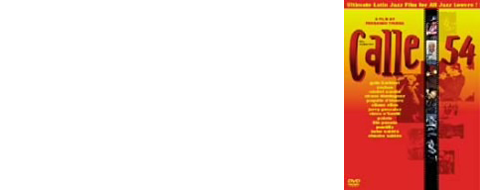
Q.7
ジャズとラテン・ジャズの違いを率直にどう識別しますか。
☆ Michel. C :
Very simple. It’s very simple. You know, the jazz creation is different in Latin because in the United States when the slaves were making – and there’s others than slaves of course, but – they were creating jazz, their owners had taken away all the original folklorical instruments, like the African drums. That's the main difference. That’s why the black musicians in the United States, had to play the marching band instruments: the snare drum, the kick drum, the bass drum, and the cymbals. And that’s why the origins of jazz are with those instruments. Even though at that time people talk about the “jungle beat” or, you know, the African influence in the jazz, in the origins of jazz. And then in the Caribbean it was different because the slave owners didn’t take away the instruments, and they let their slaves keep their African instruments. And that’s why you see the evolution in all those African instruments into the congas and the bongos and the timbales. And that’s why, you know, in the carnivals in Cuba or the American Republic of Puerto Rico, they would be using the conga. The conga was only one instrument at that time, not like we see today. They would hold it strapped to the body and play it. And those were the original African instrument. They just evolved. And the first instrument that was allowed into a concert hall was the bongos, of African decent. And then eventually what happens is the rhythms are the same. It’s just, there used to be a lot of commerce between the Caribbean and New Orleans, and that’s how back and forth jazz traveled between New Orleans and the Caribbean. And of course it acquired a different color because of the different instruments and different rhythms. But in reality is this, we always that Africa was the grandmother of jazz. And then, the grandchildren evolved in different ways, but at the same time it’s the same route. So definitely the rhythms are… they can coexist, because they have like the same roots. And basically in Latin jazz what we’re doing is using the normal Latin rhythms but we superimpose on that the improvisations and the jazz harmonies and therefore it becomes Latin jazz. And jazz, in traditional jazz, it’s like a different beat – it’s like a 4-beat walking pace, normally. And normally it has the jazz harmonies of course.
:
それはとても簡単なのですよ。ジャズの創造はラテンとは違っていて、というのはアメリカ合衆国では奴隷とされていた人たちが――奴隷でなかった人々ももちろんいますが――ジャズを生み出していて、彼らの主人たちはアフリカの太鼓のような、もともとの民族的な楽器を全て取り上げてしまっていたのです。そこが主たる違いです。だからアメリカ合衆国の黒人のミュージシャンたちはスネアドラム、キックドラム、バスドラム、そしてシンバルといったマーチング・バンドの楽器を使って演奏しなければならなかった。だからジャズの起源はこうした楽器とともにあるのです。たとえ当時の人々が“ジャングル・ビート”とか、ジャズの、ジャズの起源におけるアフリカの影響とかを話していたとしても。そしてそれからカリブ海地域は、奴隷所有者たちが楽器を取り上げなかったので、状況が違っていました。彼らは奴隷たちにアフリカの楽器を維持させたのです。そして、そういうわけでアフリカの楽器がコンガとかボンゴとかティンパニへと発展しました。そしてまたそういうわけでキューバやアメリカのプエルトリコではコンガを使うのです。コンガは今日私たちが目にする様子とは違って、当時たった1つの楽器でした。彼らはコンガを手で持ち、体に紐で固定して演奏していた。そしてこれらがオリジナルのアフリカの楽器で、それが発展しただけなのです。そして最初にコンサートホールへ持ち込みが許されたのはアフリカに起源を持つボンゴなのでした。そしてやがて起こったのはリズムが同じだということ。以前カリブ海地域とニューオーリンズの間にはたくさんの通商があり、そのため両者間をジャズが行ったり来たりと旅をしたのです。もちろんそこで違った楽器やリズムによって違ったカラーが得られました。しかし現実は、アフリカがジャズの祖母であるということです。そうして孫たちは違った方向へと進化していくけれど、同時にその道筋は同じなのです。だからリズムは決定的に・・・同じルーツを持っているから共存し得る。そして基本的にラテン・ジャズで私たちがやっていることというのは、ラテンのリズムを使って、しかしそこに即興とジャズのハーモニーを重ねる、そうすることによってラテン・ジャズになるのです。そしてジャズは、伝統的なジャズは違ったビートで、普通は4ビートの歩行ペースのようです。そしてもちろん、通常はジャズのハーモニーがあります。

But the main difference is the syncopation. In the Caribbean, we added the syncopated underpinning to the whole thing as well. The syncopations in traditional jazz are done by the melodic instruments and the harmonic instruments, and different syncopations assist as well, in the percussion. But they are all cousins. So it’s like a trade between one and the other. And the ones who saw that connection, immediately, were the original ones like Jelly Roll Morton, and Scott Joplin, they used to talk about the Spanish tinge way back in the beginning of jazz., when it was the ragtime, for it. And they always called it Spanish tinge. Today we talk about Latin tinge, and the evolution of it as well.
:
しかし、主な違いというのはシンコペーションでしょう。カリブの音楽では私たちは全体にもシンコペーションを用いた構造を加えました。伝統的なジャズではシンコペーションは旋律の楽器とハーモニーの楽器によってなされ、またパーカッションで違ったシンコペーションもまた力を添えています。ですがそれらは皆、いとこ同士のようなもの、互いに交換しているようなものです。そのつながりにたちまち気がついたのがジェリー・ロール・モートンとかスコット・ジョプリンといった創始者たちで、彼らはジャズの始まりのころ、ラグタイムのころですが、よくスペイン調について語っていたものでした。そうしていつもそれをスペイン調と呼んでいました。今日私たちはラテン調について語り、動揺にその進化についても話します。
Dizzy Gillespie and Charlie Parker, they know about it. That’s why in the be-bop times, they added congas and bongos to their music. Ray Barretto used to be recording with Charlie Parker and Dizzy Gillespie; John Reposo was playing congos and bongos with Dizzy Gillespie, that’s why you have Manteca that’s why you have Night in Tunisia. That’s why you had all this. Dizzy always talked about the African Diaspora, that’s what he called it. For him it was, and that’s why he had a big band called the Afro-Cuban band; “Afro-Cuban jazz,” he used to call.. And you know, it’s all like this. There’s a great book in Spain, it’s called “The Encyclopedia of Latin Jazz.” (*Diccionario de jazz latino) Which is really wonderful because it captures everybody that has used Latin rhythms playing jazz. And it’s published in Spain. The only problem is I think is so far, it’s only in Spanish. Yeah, I don’t think it’s published in English yet. But it’s wonderful. The author is Nat Chediak, and Fernando Trueba, the same director that did Calle 54, The compiled all the recording and all the different musicians, Americans or not Americans, that have put together Latin rhythms with jazz, and vice-versa: jazz with Latin rhythms. So it’s a wonderful book, and it’s an encyclopedia. And it’s a complete discography of anybody that has done anything that is related to Latin jazz. It’s very well explained, that book. It’s a nice dictionary. I think it’s called “Dictionary of Latin Jazz”. it’s really wonderful.
:
ディジー・ガレスピーとチャーリー・パーカー、彼らはそれについて知っています。だからビ・バップの頃彼らはコンガやボンゴを彼らの音楽に加えたのです。レイ・バレットはチャーリー・パーカーやディジー・ガレスピーと一緒にレコーディングしていたものでした。ジョン・レポゾはコンゴやボンゴをディジー・ガレスピーと一緒にやっていて、だから「マンテカ」ができたし、「チュニジアの夜」ができた。だからこれら全てが存在しているのです。ディジーはいつもアフリカン・ディアスポラにつて語っていた、彼はそう呼んでいたのです。彼にとってそれは、そして彼だからこそ、アフロ・キューバン・バンドと呼ばれるビッグ・バンドを組織していたし、そして“アフロ・キューバン・ジャズ”とよんでいました。そして全てこんな具合です。スペインに“ラテン・ジャズ百科事典” (*Diccionario de jazz latino)という素晴らしい本があります。これは本当に素晴しい本で、というのもラテンのリズムを使ってジャズを演奏したことのある人全てを引きつけるのです。ただ1つの問題点は、今のところ、スペイン語のみで出版されていることだと思います。ええ、英語ではまだですね。けれど素晴らしい本です。書いたのはナット・チェディアックとフェルナンド・トゥルエバ、この人は『Calle(カジェ)54』の監督です。彼らが全てのレコーディング、全ての様々な違ったミュージシャンたち、アメリカ人だろうとそうでなかろうと、ラテンのリズムをジャズに合わせて、またその逆、ジャズをラテンのリズムに合わせて、まとめたのです。ですから素晴らしい本ですし、百科事典です。そしてラテン・ジャズに関係することを何かしらしたことのある人にとっての完璧なディスコグラフィーです。とてもよく説明がされていますしいい辞書で“ラテン・ジャズ辞典”と呼ばれていると思います。本当に素晴らしい本なのですよ。

Q.8
ミシェルさんはニューヨークに派遣されたラテン・ジャズの大使の1人でもありますね。
☆ Michel. C :
Yeah I became.. But I belong to the second generation of .. You know, before us there were three decades of great musicians in Latin jazz in the 40’s, 50’s and 60’s, which eventually evolved into what we called “salsa”. You see salsa musicians in the 70’s were inspired by jazz, and by Afro-Cuban jazz, which is what it used to be called in the 40’s, 50’s, and 60’s. And then salsa became more of a Latin music, you know, dance music. But the harmonies of salsa were jazz-oriented. And all those musicians making salsa at the time, including the Palmieri Brothers, Eddie Palmieri, where inspired by McCoy Tyner, and by you know, all the guys who were making jazz.
:
ええ、そうなりましたね・・・しかし私は第2世代で・・・私たちより以前には、40年代、50年代、60年代という30年間のラテン・ジャズの素晴らしいミュージシャンたちの時代があったのですが、それがやがては“サルサ”と呼ぶものに進化したのです。’70年代のサルサのミュージシャンたちはジャズとか’40年代、’50年代、’60年代にそう呼ばれていたアフロ・キューバン・ジャズというものに影響を受けていました。そしてそれからサルサはよりラテン音楽になって、そう、ダンス音楽になったのです。けれどもサルサのハーモニーはジャズが起源です。そしてパルミエリ兄弟のエディ・パルミエリとか、当時サルサを作曲していたミュージシャンたちはマッコイ・タイナーとか、ジャズをやっていた皆に影響をうけていたのです。

→ EDDIE PALMIERI Y LA PERFECTA IIの公演詳細はこちらから
And by Dizzie Gillespie.. And that’s why there would be that Monday Night Big Jam Session and the Village Gate in New York. That used to be called “Salsa Meets Jazz.” It was about that – it was a salsa band accompanying a jazz soloist. They’ll come and sit in with them. And it was a big, big, big series; very popular, every Monday night. And that’s the reason why, because the salsa musicians could play jazz too. It’s just that they weren’t commercial, and they played mostly for dances. And then, in the 80’s, is when the whole thing changed again. And then the Latin musicians didn’t go into salsa bands, but they started making jazz. And that started in Spanish Harlem, in New York, where there used to be a Monday-night jam session. But a jazz jam session, not a Latin jazz session. But everybody used to come there, Americans and Latins, and I think that thing created a whole new style.
:
そしてディジー・ガレスピーに・・・そういうわけでニューヨークにマンデー・ナイト・ビッグ・ジャム・セッションやヴィレッジ・ゲイトがあるのです。あれはかつて“サルサ・ミーツ・ジャズ(サルサのジャズとの出会い)”と呼ばれていました。それは、サルサのバンドがジャズのソリストと一緒に演奏するということでした。彼らはやってきて、一緒に座っていた。それは大きな、大きな、大きなシリーズでとても人気があって、毎週月曜の夜に行われていました。だからサルサのミュージシャンたちはジャズを演奏することもできたのです。ただそれは商売上ではなくて、そしてたいていの場合はダンス音楽を演奏していた。そしてそれから80年代には全てがまたガラリと変わったのです。それからはラテン・ミュージシャンたちはサルサ・バンドには向かわず、ジャズをやりはじめたのです。それはニューヨークでかつてはマンデー・ナイト・ジャム・セッションがなされていたスパニッシュ・ハーレムに始まりました。でもジャズのジャム・セッションです。ラテン・ジャズではありません。それでも皆、以前はそこへやってきました。アメリカ人もラテン系の人たちも。そうして全く新しいスタイルが作り出されたのだと思います。
☆ Michel. C :
But you see today are all the guys that were in this jam sessions, I was one of them. Steve Turre used to be there too, The Gonzales brothers were there too, Jerry and Andy Gonzales. We all met there, as youngsters. And there was another space in the midtown of New York, in Manhattan, which belonged to an ethno-musicologist – her name was Verna Gillis. And Verna… the name of the place was Soundscape, and she on Thursday nights was the night of the Scattaga, All Jam Session. But then at that time is when the Cubans started arriving in New York, and they came and every, Thursday night, that was the meeting point, everyone would go there and sit in and play. What we played there was all jazz standards, but with Latin beat. And eventually promoters started coming to check us out. And that’s how I was invited the first time in 1986, to go to Berlin Jazz Festival, and bring that sound to Germany. And that was my official debut, in November 1986, in Europe as a leader. And it was a big explosion. But the promoter of the Berlin Jazz Festival, George Gruntz, heard me at Soundscape, and he said, “I want to invite you to my festival.” And that’s how I went there, so that’s how it happens you know?
:
今日いる人たちは皆このジャム・セッションにいたわけで、私もその1人です。スティーブ・トゥーレもかつてそこにいました。ジェリーとアンディー、ゴンザレス兄弟も。私たちは若者のころに皆そこで出会ったのです。もう1つ、ニューヨークのミッドタウン、マンハッタンにヴェルナ・ギリスという民族音楽学者が持っていた場所があって、名前はサウンドスペースといいました。 木曜の夜は全てがScattaga、ジャム・セッションの夜でした。当時はキューバ人たちがニューヨークにやって来て始めた頃で、やって来た彼らは毎週木曜の夜に、そこを出会いの場所として誰もがそこへやってきては座って、演奏していました。私たちがそこで演奏していたのは全てジャズのスタンダードな曲で、でもラテンのビートでやっていました。そしてやがてはプロモーターが見に来るようになったのです。そうやって私は1986年に始めてベルリン・ジャズ・フェスティバルに招待され、私の音楽をドイツで披露しました。それが1986年11月で、私のリーダーとしての公式な欧州デビューです。大きな展開でした。ベルリン・ジャズ・フェスティバルのプロモーター、ジョージ・グランツは私の演奏をサウンドスペースで聴いて、私に言いました。「君を私のフェスティバルに招きたい」と。そうして私はベルリンに行くことになりました。そんな風に事は起こりますよね。

☆ Michel. C :
So it was a really interesting time because it was an evolution. And at the same time I was going to two other clubs, I was performing at the uptown club called Mikell’s, which was very important because that was a very eclectic club. He had R&B and he had jazz. And that time the most important thing about that club was that he also had the beginning of fusion, yeah, you know, or the ending of fusion, because that’s where Steve Gadd used to play with the band called Stuff, every week. And also Art Blakey and the Jazz Messengers, that’s where they played. It’s M-I-K-E-L-L-apostrophe-S. And Art Farmer used to play there also, and then George Benison played there too, and Chaka Khan, played there too. And David Sanborn played there too. So look at this, it’s a very wide styles. In the late 70’s and the beginning of the 80’s. That’s where I met George Benison. He used to come and listen to us. He used to sit at the tables, and Chaka Khan, the same. Because we were all also studio musicians, so we used to record everything, you know, not just Latin, but R&B and everything. And you know, Will Lee used to go there and play. And we just used to just jam, and that’s where I use to play with Anthony Jackson and Dave Weckl. In fact Swing Journal did the first article, the first article about me in Japan was done in that club, and there was a big photo of my sextet which included Lew Soloff, and included Chris Hunter, the first edition, and Sammy Figueroa, and Dave Weckl, and Anthony Jackson. And it was a big article on me, and that’s how at that time, that King Records found me, they found me there in that club. And that’s why my first two releases were Japanese. Why Not? and the second one, Suntan. That’s where they found me. And then eventually the club where we moved downtown to in Manhattan, was the Brecker Brothers Club, in 7th avenue south. And hat was the hit club at that time because it was the most avant-garde musically speaking. Because you see it was not a Latin club either. So you see I moved my sextet at that time, down to the village to play at the 7th avenue south club. And it was really very popular. So I play both Uptown and Downtown. That’s why I have a song called Uptown Manhattan. You see, I use to go out to hear Art Blakey when Wynton Marsalis and Branton Marsalis had just arrived into New York, in the mid 80’s. And we used to play together. I sat in with Art Blakey there, I played with him. Because he would go into the tables, and find out who were the musicians, The Musicians. And he would say, “Ok you’re with me. You’re sitting in with me.” It was the greatest scene.! That’s how the jazz evolves. So that’s how it.. You see, for me, I’ve always been in all these different worlds. At the same time I was tolling at Juilliard, You see, at the same exact time. Exactly the same time. I was going to school I was studying classical music at Juilliard, and also at Mannes College of Music. At the same time, at that time, I played with the New York Philharmonic, in New York as a reinforcement musicians. Because they needed someone who could play jazz and classical, because they had a piece, a concerto, of an American Composer that called for jazz musicians to be able to play and to improvise. So you see I was in all the worlds.
:
進化ですから、とても興味深かった。同時に、2つのクラブに通っていたので、1つはアップタウンのMikell'sというクラブで、ここは音楽の幅が広かったのでとても重要でした。R&B、そしてジャズもありました。当時そのクラブについて最も重要だったことは、そこがかつて毎週スティーヴ・ガッドがスタッフというバンドと演奏していたところでフュージョンの始まり、あるいは終わりがそこにあったということです。そしてまたアート・ブレイキーとジャズ・メッセンジャーズもここで演奏しました。M・I・K・E・L・Lにアポストロフィのsです。アート・ファーマーもそこで演奏していたものです。それからジョージ・ベニソンも、チャカ・カーンも。デヴィッド・サンボーンも演奏していました。ですからほら、こんなにスタイルが幅広いのです。’70年代後半と’80年代初めです。ここで私はジョージ・ベンソンに会ったのです。彼はやって来ては、私たちの演奏を聴いていました。テーブルについて座って。チャカ・カーンもそうでした。なぜなら私たちは皆スタジオ・ミュージシャンでもあったので、以前はラテンだけではなく、R&Bでも何でも、全てをレコーディングしていたのです。そして、ウィル・リーもそこへ行っては演奏していたものです。私たちはただジャムを行い、そこで私はよくアンソニー・ジャクソンやデイヴ・ウェックルと一緒に演奏しました。実に、スイング・ジャーナルが日本で私について書いた最初の記事もこのクラブでのことです。そこには私のセクステットの大きな写真が載り、ルー・ソロッフとクリス・ハンターがいて、創刊号では、サミー・フィギュロアにデイヴ・ウェックル、そしてアンソニー・ジャクソンが掲載されました。それは私についての大きな記事で、当時それによって、キング・レコードが私を発見してくれたのです、そのクラブで。そんなわけで私の最初の2枚のアルバム発売は日本でされたのです。素晴しいでしょう?そうして2番目が「Suntan」でした。そこで彼らは私を発見したわけです。そしてやがてマンハッタンのダウンタウン、7thアベニューの南側にあるブレッカー・ブラザース・クラブに動いたのです。そこは当時のヒット・クラブでした。というのも音楽的に最もアヴァンギャルドだったからです。ラテン音楽のクラブでもありませんでした。当時私は自分の6重奏団を率いてそこへ動いたのです。ヴィレッジの、7thアベニューの南側にあるクラブへ。そこはとても人気のあるクラブでした。ですから私はアップタウンでもダウンタウンでも演奏するのです。そんなわけで私には、アップタウン・マンハッタンという歌もあります。私はかつて、’80年代の半ばにウィントン・マルサリスやブラントン・マルサリスがN.Y.に着いたばかりのころアート・ブレイキーを聴きに行っていました。そして一緒に演奏したものです。アート・ブレイキーと一緒にそこに座って一緒に演奏しました。彼はテーブルへやってきては、誰がその(自分の求めている)ミュージシャンかを見つけ出すのです。そしてこう言います。「オーケー、君だ。私と一緒に座って」と。素晴らしい光景でした。こんな風にしてジャズは進化してきたのです。そんな風にして・・・私は・・・これら全ての様々な世界に行ってきたのです。同時に私はジュリアードで学んでいました。全く同じ時期に学んでいたのです。正確に同じ時に。学校に行こうとしていて、クラシック音楽をジュリアードで、さらにマネス音楽院で学ぼうとしていたのです。同時期に、当時N.Y.のニューヨーク・フィルハーモニックで予備の音楽家として演奏しました。彼らはジャズもクラシックもできる演奏家を必要としていて、というのもあるアメリカの作曲家の協奏曲のために、ジャズが演奏できて即興のできるミュージシャンが必要だったのです。そうして私はその全ての世界にいたのでした。

→ DAVID SANBORN GROUPの公演詳細はこちらから
Q.9
それでは常にジャズとクラシック、両方と共に生きてこられたのですね。
☆ Michel. C :
All the time. That’s why I’m very fortunate to be alive today, because somehow it all came handy. You know, I had already what happened was, at that time I had not defined exactly whether I was going to follow a jazz career or not. *pause..* So you know, what happened was, when the Japanese scout found me there, that was a turning point. And even though I was studying classical, the opportunities started happening and I just followed the flow into the jazz world, but I never stopped studying classical. And then when my first album with Sony called Michel Camilo came out, that’s when I was brought by Sony music to France to a showcase in the Milan convention and there is when I met the LeBec sisters, and they were classical pianists. Because they were Sony artists too, Sony classical. So then they heard me play and they said, “Oh, you’re classical!” and I said, “No, I’m jazz.” And then they’d say, “No, no, but your touch on the piano is classical.” So I said, “Well, I studied all that, I can play classical.” And they said “Ok, you’re coming with us on tour.” So we did a tour on three pianos, and that was going back into the classical world. And it was a big success, all over France. We did like 12 concerts, on three pianos. In1990. That’s how I went back into classical. And then they asked me to write a big piece for a symphony orchestra in London. And I composed a piece for them, and then everybody started asking, “Who is that guy?” And that’s how I went back into the classical world, because of them. That’s it.
:
ずっとそうです。だから今日の世界に生きられて幸運なのです。なんというか、便利になりましたから。当時私は自分がジャズの道を行こうときちんと決めてはいませんでした。実際この身に起こったこととしては、日本人のスカウトが私をそこで発見したとき、あれが転機だったのです。クラシックを勉強していましたけれど、チャンスが訪れ始めて、ジャズの世界の流れに乗ったのです。けれど音楽の勉強はやめませんでした。そうしてソニーからの最初のアルバム、“ミシェル・カミロ”が出たとき、ソニー・ミュージックはミラノのコンベンションで披露するために私をフランスに連れて行き、そこで私はクラシックのピアニスト、ラベックシスターズに出会ったのです。彼女たちはソニーの、ソニー・クラシカルのアーティストでした。彼女たちは私の演奏を聴いて、「クラシックの音楽家なのね」と。私は言いました。「いいえ、ジャズですよ」そしたら彼女たちは言うんです。「いいえ、そのピアノタッチはクラシックだわ」って。だから言いました。「まあ、全部勉強しましたから。クラシックも弾けます」って。それで彼女たちが「オーケー、それなら一緒にツアーに来て」と。それで私たちはピアノ3台でツアーをしました。それがクラシックの世界への回帰でした。フランス中でとても大きな成功をおさめました。3台のピアノで、コンサートを12回くらいやりました。1990年です。そうやってクラシックの世界へと戻ったのです。それから、ロンドンのシンフォニー・オーケストラ用の大きな作品を書くことを彼女たちに頼まれました。そして彼女たちのために小さな曲を書きました。すると皆が尋ね始めました。「あれは誰?」と。そうやって、クラシックの世界に戻っていったのです。彼女たちとの出会いによって。そうなのです。

Q.10
ミシェルさんのクリニックはとても反響が大きかったですね。2〜3日間の講座を再びやりたいという希望があります。次回に向けて何かメッセージはありますでしょうか?
☆ Michel. C :
Wonderful. Well that would be like what I did at Berklee College of Music. That’s what I did at Berklee. You know, I am a visiting professor at Berklee College of Music, and when I went there I went and taught master classes for like a week, and I chose my subjects everyday, whatever I wanted to teach. So one day I taught about composition and creativity. The next day I taught about improvisation. And the next day I taught about piano technique. Or another day, I talked about orchestration. So it could be like anything like that, we could choose different subjects for each day. Now I went one day to, I was invited by MIT, do you know what that is? MIT is Massachusetts Institute of Technology. That’s where all the scientists go to study; there are no musicians there, only scientists. They invited me to talk to give a clinic about creativity: the other side of the brain. So I did a lecture on that too. So anything is possible. *laughs* It was an honor to go there!
:
素晴らしい。そうですね。私がバークリー音楽大学で行ったような内容になるでしょう。バークリーでそれをやったのです。私はバークリー音楽大学で客員教授をしていて、そこで、1週間くらいマスタークラスを教えたのですが、私は自分で毎日自分が教えたい題目を選んで教えていました。ある日、作曲と独創性について教えました。翌日には即興について教えました。その翌日にはピアノの技能について教えました。また、別の日にはオーケストレーションについて話しました。こんな風に何でもありで、違った題目をその日ごとに選べたのです。さて、ある日私はMITに招かれたのです。分かります? MIT、マサチューセッツ工科大学ですよ。科学者が勉強に行くところです。そこにはミュージシャンはいません。科学者だけです。彼らは創造性というものについての短期講座をして欲しいと私を招いたのです。つまり脳の反対側ですね。だからそれについて講義をしました。つまり、何でも可能なのです。(笑) MITへ行けたのは光栄でしたね。

Q.11
観に来てくれた皆さんにメッセージを。
☆ Michel. C :
I want to thank all of you that came and enjoyed my music and that came and supported us this week because we had a wonderful time thanks to you. And I love you so much and I hope to see you soon. Take care and god bless you.
:
今週私の音楽を楽しみにいらして下さった方々、そして私たちを応援してくださった方々皆さんに感謝しています。素晴らしい時を過ごせました。ありがとうございます。皆さんが大好きです。近い将来またお会いしたいと思います。ご自愛ください。神のお恵みがありますように。
◆ MICHEL CAMILO
official web site :
http://www.michelcamilo.com
◆ BLUE NOTE TOKYO メールマガジン・会員も募集中。
HTML メールにて、新規決定公演のいち早情報や、おすすめ情報をお届け。
https://reserve.bluenote.co.jp/bn-reserve/mailmg/BC0010_mail.jsp

![]()


